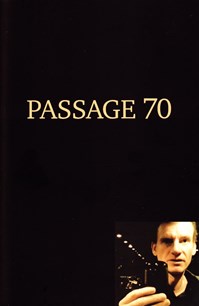Kierkegaard, antifilosofi og global migration i "Gør Danmark dansk"
DOI:
https://doi.org/10.7146/pas.v28i70.24489Resumé
Julie Nørgaard & Camilla Møhring Reestorff: “Kierkegaard, Antiphilosophy and Global Migration in Make Denmark Danish”
Through a reading of Søren Kierkegaard this article studies negotiations of global migration and national identity as it unfolds in DR1’s TV-program Gør Danmark Dansk/Make Denmark Danish (2012). In the program three ethnic and three Muslim Danes have to live together and discuss “Danishness”. Kierkegaard’s depictions of the modern, dispassionate society (1846) are used to examine the program’s articulation of a new inclusive national community. A comparative reading of Kierkegaard’s (1843), Butler’s (2000) and Honig’s (2010) readings of Antigone suggests that the program’s Muslim participants are staged as figures of transformation that bring forth a new national identity. Yet by reading the program through antiphilosophical (Lacan 1980; Badiou 2011; Groys 2012) lenses it becomes evident that the participants are “working the intervals” between imitating the program’s prescribed ethical choice and claiming a postmetaphysical ethics.
Downloads
Publiceret
Citation/Eksport
Nummer
Sektion
Licens
Forfattere, der publicerer deres værker via dette tidsskrift, accepterer følgende vilkår:
- Forfattere bevarer deres ophavsret og giver tidsskriftet ret til første publicering, samtidigt med at værket efter publiceringen er omfattet af en Creative Commons Attribution-licens, der giver andre ret til at dele værket med en anerkendelse af værkets forfatter og første publicering i nærværende tidsskrift.
- Forfattere kan indgå flere separate kontraktlige aftaler om ikke-eksklusiv distribution af tidsskriftets publicerede version af værket (f.eks. sende det til et institutionslager eller udgive det i en bog), med en anerkendelse af værkets første publicering i nærværende tidsskrift.
- Forfattere har ret til og opfordres til at publicere deres værker online (f.eks. i institutionslagre eller på deres websted) forud for og under manuskriptprocessen, da dette kan føre til produktive udvekslinger, samt tidligere og større citater fra publicerede værker (se The Effect of Open Access).





